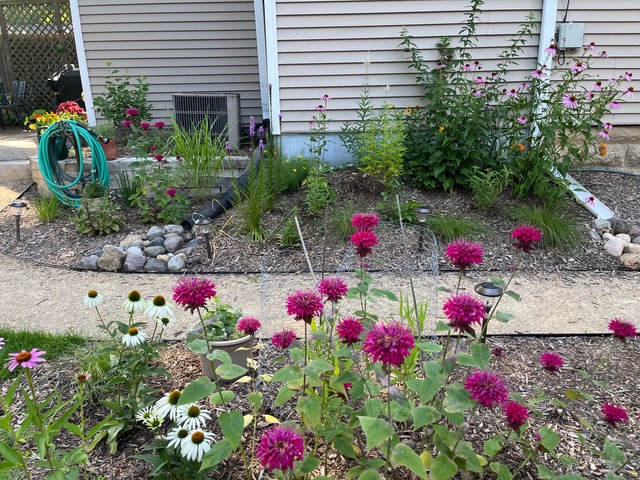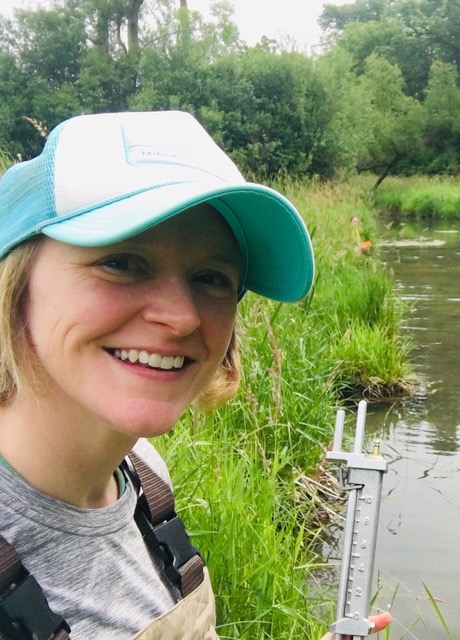Rotary International has named watershed expert Nicki Clayton as its new Area of Focus Manager for the Environment. She brings two decades of experience from the public sector, including breakthrough multi-sector collaborations which have given her a keen appreciation of Rotary Clubs’ unusual potential to catalyze transformative environmental solutions.
She’s already met with ESRAG’s Executive Committee and is eager to work with the Environment Cadre to build out Rotary’s capacity to provide technical assistance to clubs and districts across the globe. In a talk to ESRAG’s Feb. 26 Projects + Seminar, Clayton will offer updates on Rotary’s environmental role and lessons learned so far in Rotary’s year-old partnership with the UN Environment Programme, Community Action for Fresh Water (CAFW). Register here.
Clayton sees a game-changing potential in Rotary members’ ability to bring together key local stakeholders to figure out how each can contribute to a solution beneficial to all. In an interview for ESRAG’s newsletter, she shared what she learned from persuading regulators to try a strategy they’d never used before in the quest to improve water quality in Lake Michigan’s Green Bay. This vividly illustrates the value of doing a thorough, inclusive job on the community needs assessment, which is now required for Rotary Global Grant applications.
And here is the story.
Transforming Environmental Collaboration
Before joining Rotary International in early 2024 as partnership specialist for Community Action for Fresh Water, Clayton worked on water quality and water use policies and projects for the Wisconsin Department of Natural Resources.
Early on in her career, her responsibilities included distributing and managing beach grants, and working on statewide watershed plans. At that time, the customary US approach was for each to state to write reports assigning pollutant thresholds to each sector without bringing the people in the sector together.
Clayton pioneered a different approach, working with the US Environmental Protection Agency and a consultant. The key was a team approach and to get everyone to listen to each other and find solutions shaped and owned by the local stakeholders. This started with outreach: “we conducted surveys of people’s fears, behaviors, and strengths, and their level of trust in different policy makers and government-assisted programs,” Clayton says.
The watershed project, aided by a technical advisory committee and academic water quality researchers, subsequently organized an all-day workshop that “brought together the stakeholders, such as city and stormwater managers, industry leaders, crop consultants, and farmers. We mixed them all together, and we learned a lot about their barriers and economic concerns,” she continues.

Backyard Fall
Working over time, the diverse groups ultimately embraced a shared goal: to reduce phosphorus and sediment pollution in Lake Michigan’s Green Bay. Clayton continues: “the process was crucial: listening to each other. Face-to-face discussions were a win. Without that, it’s too easy to put the blame on others. How about ‘we’re all part of the problem: we all have to be part of the solution?’ Long-term impacts are difficult to see. It takes years to influence that many behaviors on that big a scale.”
After working on water quality for nearly a decade, in 2012, she started working on water sustainability through implementation of the Great Lakes Compact – a water management agreement between the US states and Canadian provinces that border the Great Lakes. She issued water use permits, reviewed and approved diversion applications, and helped create educational content for citizens such as this StoryMap.
By late 2023, Clayton was ready for a new challenge and mentioned to her family over Thanksgiving dinner that she was job-hunting. A niece and nephew, both of whom had been Rotary Youth Exchange students, alerted her that Rotary International was recruiting a partnership specialist for the UNEP-Rotary strategic partnership.
“I didn’t know much about Rotary beyond the work on polio and the Rotary sign you see outside so many cities and towns,” she says. “I did some research and was surprised to discover the environmental focus of Rotary, so I applied.” She got the job, and was delighted to Rotary’s structure as a global network of local clubs. “Coming from a government agency, I see that local clubs doing the work, being part of the solution, is where you are going to see change,” she says. “Environmental issues can be so overwhelming. You can have a bigger impact if you all do something small. Rotary members can play an advocacy role, can take greater risks. You have the ability to unite over common issues and find solutions.”
Clubs are ideally prepared to catalyze multi-stakeholder buy-in because of their local roots, networks, and membership spanning so many professions. “There are many local stakeholders your club can tap into: local officials, civic groups, businesses, universities,” Clayton says. “You can convene people for the important conversations. Scoping work is very important because some of the groundwork may already be done.” Once the discussions have revealed the capabilities and barriers, “you can determine what Rotary’s role should be in the project.”

Plants Side Yard
The convening and connecting can be regional and even multi-national. “That’s what is so exciting,” Clayton says. “It starts with a local project, and then there’s another Rotary club upstream and another downstream.”
Clayton’s watershed expertise and the UNEP-Rotary partnership to protect fresh water are an excellent basis for supporting the broad array of environmental actions encouraged by Rotary’s Environment guidelines. “Most cities are centric around water,” she notes. “I am passionate about water because it brings together so much else: upland conservation, sustainable development, disease prevention, community economic development. At Rotary, as we roll out the Area of Focus strategies over the next year, you will see common threads running through each one and how the environment fits into them.”
Nicki Clayton’s own local action starts right at home: she and her husband Chris, who has also devoted his career to water quality advocacy and policy, tore out their long concrete driveway and replaced it with native plants on their small lot in the middle of the City of Madison, Wisconsin. “It gives me such pleasure to look out the window and see the plants and birds living there,” she says. Since the mid-1990’s she’s practiced yoga, including teaching it for many years. “Part of my daily practice is to meditate,” she says. “I chose to work for Rotary because the values underlying yoga – the responsibility to act in ways that value truth and that create no harm – align with the Four-Way Test.”
Editor’s Note: Please come meet Nicki on Wednesday 26 February at 14:00 UTC, 800 EST, 1930 IST at ESRAG’s Weekly Seminars. Press to REGISTER or to receive a Link to her presentation.

